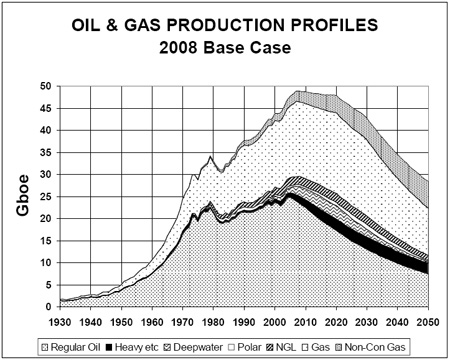Oil and gas prices: peak oil
by Patrick
Comments Off on What “peak oil” could mean to you
What “peak oil” could mean to you
Peak oil.
There it is. A rather nondescript phrase that, when plugged into Google, calls up a mountain of angst and controversy.
Peak oil is the apex of production, when new field discoveries and technologies just can’t recover as much oil as we once did. The U.S. passed peak production in the 1970s. Some say we’re passing the global peak now, or about to.
The implications are huge.
Millions of years worth of energy have been stored in a compact and portable form to give us oil. Unleashed a century ago, the black gooeyness had a lot to do with transforming and buoying our modern economy and way of life.
Are there enough energy alternatives to replace black gold? Can we mitigate in time to avoid economic disaster?
Robert Hirsch tried to answer those questions in a seminal 2005 report he did for the U.S. Department of Energy. He issued a dire warning, saying we better get moving on curbing demand and developing alternatives.
But it doesn’t sound like we did a very good job, according to a book Hirsch and two other authors released this month. “The Impending World Energy Mess,” with a forward by former U.S. Energy Secretary James Schlesinger, says:
- World oil production will start to decline within five years.
- Economic damage will increasingly get worse each year.
- Fixing the problem will take more than a decade.
If you want, you can look Mr. Hirsch in the eye as he delivers the bad news in person, and maybe get to ask him a question. He’s in town to talk at the Electrification of Transportation Conference being held at the Henry B. Gonzalez Convention Center.
Hirsch will be the luncheon speaker on Friday. The conference cost is $40.

